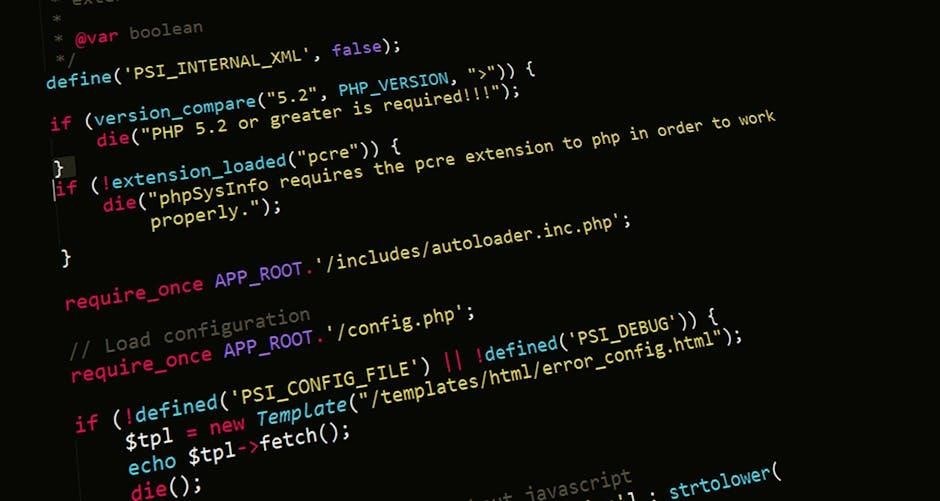A motion to transfer venue in Texas allows parties to request moving a case to a different county for convenience or legal propriety, ensuring fair proceedings.
1.1 Definition and Purpose
A motion to transfer venue in Texas is a legal request to move a case to a different county for trial. Its purpose is to ensure fairness, convenience, and adherence to legal standards, addressing issues like improper venue or bias. This procedural tool allows parties to seek a more appropriate forum, balancing judicial efficiency and justice. Properly filed motions ensure cases are heard in the correct jurisdiction.
1.2 Importance of Venue in Legal Proceedings
Venue plays a critical role in ensuring fairness and efficiency in legal proceedings. It determines which court has jurisdiction and whether the case can be conveniently heard. Proper venue ensures impartiality, as moving a case to a more appropriate county can prevent bias and facilitate access to evidence and witnesses. Improper venue may lead to delays or even dismissal, emphasizing the need for adherence to legal standards in selecting the correct forum.

Legal Standards for Transferring Venue in Texas
Legal standards for transferring venue in Texas involve mandatory and permissive criteria, ensuring cases are heard in the most appropriate county for fairness and efficiency.
2.1 Mandatory Venue Requirements
Mandatory venue requirements in Texas dictate specific circumstances where a case must be transferred due to improper venue in the original court. These requirements are non-discretionary and based on statutory provisions. For instance, if the court lacks jurisdiction or the case involves specific subject matters, a transfer is compelled. Proper venue must be established in the requested county to ensure legal proceedings align with statutory guidelines and maintain judicial integrity.
2.2 Permissive Venue Transfer Criteria
Permissive venue transfers in Texas allow courts to grant a change of venue based on factors like convenience of parties, witnesses, and evidence. Unlike mandatory transfers, these are discretionary and consider the interest of justice. Judges may weigh the benefits of transferring the case to a more suitable county, ensuring fairness and efficiency in legal proceedings without violating statutory venue requirements.
Filing a Motion to Transfer Venue in Texas
Filing a motion to transfer venue in Texas involves submitting a written request, supported by legal grounds and evidence, within specified deadlines to the court.
3.1 Deadline for Filing the Motion
Filing a motion to transfer venue in Texas must be done no later than 21 days before trial. Timely submission ensures procedural compliance and prevents waiver of rights.
3.2 Required Documentation and Format
The motion to transfer venue must include a sworn statement, legal and factual basis, and request for a specific county. Proper formatting and service to opposing parties are essential.

Legal Basis for Requesting a Venue Transfer
The legal basis for requesting a venue transfer in Texas typically involves improper venue in the current court or proper venue in the requested county.
4.1 Improper Venue in the Current Court
Improper venue in Texas occurs when the current court lacks jurisdiction or is an inconvenient forum. A motion to transfer venue must demonstrate that the current court is improper, often citing Rule 502.4 of the Texas Rules of Civil Procedure. The motion must include a sworn statement explaining why the venue is improper and identify the correct county for the case. Proper documentation is essential.
4.2 Proper Venue in the Requested County
Proper venue in the requested county is established when the county meets legal criteria, such as being the location of the incident, residence of parties, or where assets are situated. Texas law outlines specific rules for determining proper venue, ensuring fairness and convenience. The motion must clearly identify the county and explain why it is the appropriate forum for the case, supported by relevant statutes or case law. Proper venue is a critical factor in transfer decisions.
Court Discretion in Venue Transfer Decisions
Texas judges have broad discretion to grant or deny venue transfer motions, weighing factors like fairness, convenience, and the interests of justice in their decisions.
5.1 Factors Considered by Texas Judges
Texas judges consider factors like fairness, convenience, and the interests of justice when deciding venue transfer motions. They assess the location of evidence, availability of witnesses, and parties’ residences. Court congestion and the potential for an impartial jury are also weighed. Judges balance these factors against the plaintiff’s choice of venue and the overall efficiency of the legal process to ensure a just and fair outcome for all parties involved.
5.2 Precedents and Case Law Examples
Texas courts rely on case law to guide venue transfer decisions, with key precedents shaping outcomes. Cases like In re Alcoholic Beverage Commission emphasize proper venue criteria, while Tex. Civ. Prac. & Rem. Code Ann. § 15.002 highlights mandatory transfer requirements. Recent rulings, such as those involving Judge Albright in patent cases, illustrate judicial discretion in balancing fairness and convenience. These cases demonstrate how Texas courts apply legal standards to ensure impartial and efficient proceedings.

Opposing a Motion to Transfer Venue
Opposing a motion to transfer venue requires timely filing of a response, addressing legal and factual arguments against relocation, and ensuring the court considers all pertinent factors.
6.1 Responding to the Motion as the Opposing Party
The opposing party must file a written response to the motion to transfer venue, addressing legal and factual arguments against relocation. The response should include specific objections, evidence supporting the current venue’s propriety, and counterarguments to the moving party’s claims. Proper service and filing deadlines must be adhered to, ensuring the court has adequate time to review the opposition before making a decision.
6.2 Court’s Consideration of Opposition Arguments
The court evaluates opposition arguments by assessing their legal merit and factual basis. Judges weigh factors such as convenience, fairness, and jurisdictional propriety, ensuring impartiality. Opposition evidence and testimony are reviewed to determine if the current venue remains appropriate. The court’s decision balances competing interests, aiming to maintain justice and efficiency in legal proceedings, while adhering to Texas venue transfer laws and procedural rules;

Procedural Requirements for Venue Transfer Hearings
The court requires proper notice and service of the motion to all parties, ensuring they receive copies at least 45 days before the hearing, as mandated by Texas rules.
7.1 Notice of Hearing and Service Requirements
Parties must serve the motion and notice of hearing to the opposing side at least 45 days before the scheduled hearing, as per Texas procedural rules. Proper service ensures all parties are informed and prepared, allowing the court to proceed fairly and efficiently in considering the venue transfer request.
7.2 Evidence and Testimony at the Hearing
At the venue transfer hearing, both parties may present evidence and testimony to support their positions. The moving party must demonstrate improper venue in the current court or show the requested county is more appropriate. Witnesses may testify about jurisdictional facts, and documents like contracts or leases can be submitted to establish proper venue. The court evaluates all submissions to make an informed decision.
Recent Cases and Developments in Texas Venue Transfer Law
Recent cases highlight evolving standards in Texas venue transfer law, with the Federal Circuit and Texas district courts addressing discretionary powers and emerging trends in patent litigation.
8.1 Notable Decisions Impacting Venue Transfer Practices
Recent Texas cases, such as those involving patent disputes, have significantly influenced venue transfer practices. Judges like Judge Albright have demonstrated broad discretion, shaping how transfers are evaluated. Federal Circuit rulings have also impacted state court decisions, emphasizing the importance of proper venue and fairness. These decisions highlight the evolving nature of Texas venue laws, affecting both civil and patent litigation strategies.
8.2 Emerging Trends in Venue Transfer Litigation
Texas is seeing a rise in strategic venue transfers, particularly in patent cases, with plaintiffs often choosing forums like the Western District for favorable outcomes. The Federal Circuit’s application of Fifth Circuit law has led to increased scrutiny of Texas district court decisions. Additionally, there’s a growing emphasis on efficiency and fairness, with courts prioritizing proper venue to ensure impartial trials and avoid judicial overload in popular jurisdictions.
Navigating venue transfers in Texas requires careful strategic planning, emphasizing legal standards, judicial discretion, and fairness to ensure efficient and impartial judicial proceedings.
9.1 Summary of Key Points
Understanding the principles of motion to transfer venue in Texas is crucial for ensuring legal proceedings are conducted fairly and efficiently. Key points include the importance of proper venue, mandatory and permissive transfer criteria, and the role of judicial discretion. Filing deadlines, required documentation, and opposition procedures are essential procedural steps. Recent cases highlight evolving trends, emphasizing the need to stay informed about legal developments and strategic considerations for success in venue transfer matters.
9.2 Final Thoughts on Navigating Venue Transfer in Texas
Navigating a motion to transfer venue in Texas requires a deep understanding of legal standards, procedural deadlines, and judicial discretion. Proper documentation and adherence to Texas Rules of Civil Procedure are critical. Recent cases underscore the importance of strategic planning and awareness of evolving legal trends. Consulting experienced legal counsel ensures compliance and maximizes the likelihood of a favorable outcome in venue transfer disputes.


